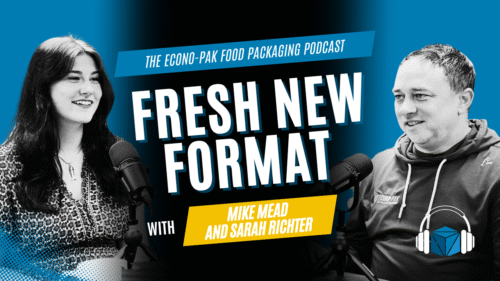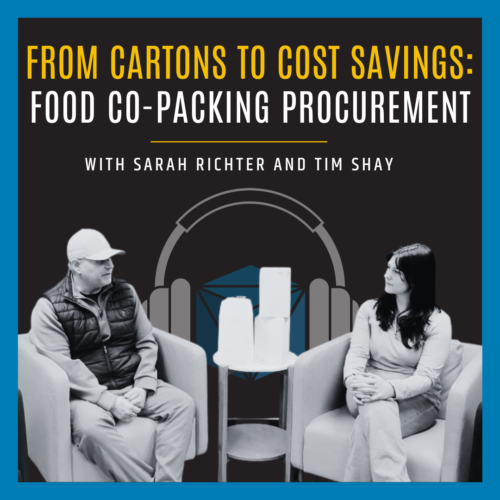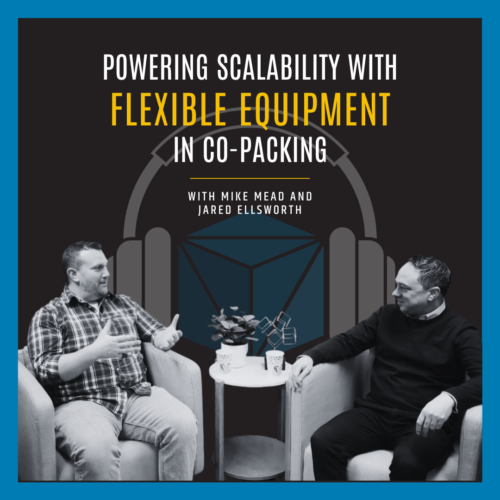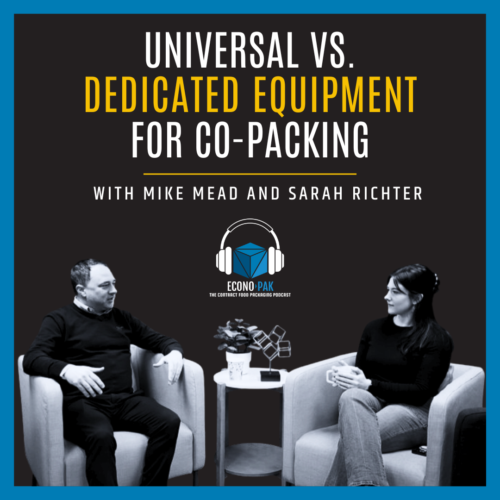Econo-Pak recently passed the SMETA audit for our Sedex certification, highlighting our commitment to ethical practices, employee safety, and sustainability.
In our latest podcast, Rohail Khan explains the audit process, its benefits for global brands, and how we maintain high standards across our operations. Discover how we uphold transparency and responsibility in the supply chain.
SMETA Audit and Econo-Pak's Sedex Certification
Sarah Richter:
Thank you so much for joining us today, Rohail, for another podcast. We just had our Sedex audit, so I would love to know more about what the Sedex audit is and what it involves.
Rohail Khan:
Sedex is actually an international standard that is based on the ETI-based code. ETI stands for Ethical Trade Initiative. It is a standard that basically looks for companies in the supply chain that if they have proper protocols and policies and procedures implemented for the employees, for the safety of their employees, for the health and taking care of their employees. It’s not just being a profitable company but also following the standards and the regulations, local or federal, and it is accepted internationally. Different countries are involved and bigger Fortune 500 companies are involved into that.
Sarah Richter:
Yeah, it would benefit all businesses of all sizes, but especially global brands would want this as well.
Rohail Khan:
Absolutely. Again, it gives a little bit of confidence to our customers, to the supply chains or the bigger companies, that the companies that they’re working or partnering with, they have the right protocols in place. They’re not involving any child labor, they’re not doing any slavery employment. It basically gives them the benefit and the transparency there.
Sarah Richter:
We passed, obviously. Can you speak to why we passed?
Rohail Khan:
On a lighter note, I don’t know. But what I can say, we had great results, actually, on our recent SMETA audit. CEDEX is the standard. SMETA is the audit that basically makes sure that if there’s any gaps in your policies and procedures. We had a great audit, where the auditor actually reviewed all the programs that it aligns with the ETI base code, it meets the federal and local regulations for label laws. It was an extensive review of our programs and procedures that the auditor looked into not only the documentation part, what’s written in the policies, but actually are we following it or not, too. It was a great outcome. We had some good examples given back to us by the auditor, which is part of the report.
The auditor interviewed multiple employees at the facility, making sure, and it was one-on-one interviews with the employees where they were speaking openly rather than having anybody sitting from management or myself or somebody within those audits. It was an open conversation.
And we had great feedback from our employees. Not only for the audit, but it also gives a good preview of what our employees are thinking. You can put out surveys, you can put out different things out there, but it’s getting the clear feedback and the transparent feedback from the employees is always great. Generally, it’s good.
All of our policies and procedures, our environmental health and safety policy aligns with the ETI base code. So that was great, and the report is published on the Sedex platform. So if any of the employees or the supply chain would like to review it, they can go ahead and visit the Sedex platform.
Sarah Richter:
That’s great. You mentioned humane treatment of workers is a huge part of a responsible supply chain. Sustainability is also a really big initiative for our clients. Maybe you could speak a little bit to how Sedex also feeds into that.
Rohail Khan:
Absolutely. This implementation of the ETI code is based on several factors. It has nine standards that you need to follow. Going back to that, first of all, these audits or the gap analysis basically shows our supply chain. It gives a transparency to them that we are following federal and local laws. We are also, as you mentioned, humane side of the things where we are taking care of the safety of our employees, giving them proper pay, giving them time off when it’s needed. That helps into that.
It also performs a view of the risk involved with some of the practices or business ethics that we do. It also goes into the environmental side of the things. A lot of not only our global customers, but other Fortune 500 companies do have sustainability programs in place for environmental. This gives them transparency, too, that Econo-Pak is taking those initiatives and making sure that our processes and our practices is not hurting the environment and we are reducing our carbon footprint moving forward. So again, it gives a little bit more transparency on that side and gives a little bit more confidence to our partners or our future companies that would like to work with us, that there is a continuous improvement process for the employee safety, for the employee benefits, and also going into the environmental sustainability site.
Also, part of this, again, Econo-Pak has been contributing to local organizations, donating. It’s part of that giving back to the community, too. Econo-Pak has been doing that for years, even this year, and it’s not limited to one organization. It’s different, multiple area of organizations that we deal within. Yes, as a company, we are doing our effort stepping in when it’s not even required, meeting or exceeding our expectations not only from our employees, but also from our partners that we deal in.
Sarah Richter:
Well, that’s awesome. That shows the level of excellence that we strive for in every single area of our business. Congratulations on passing the audit, and thank you so much for joining us today.
Rohail Khan:
Thank you for this. Again, it’s a team effort. Always a team effort. It’s not one, it’s every single… It’s like a puzzle. Every block has to go in its place to work together as a team. Thank you for this, and I look forward to have more continuous improvement in place all the time.
Sarah Richter:
Thanks.
Let's start scaling.
Is your demand outpacing your ability to package your own product? Then consider outsourcing with Econo-Pak.
With over 40 years of experience working with both small brands and Fortune 500 companies, we are capable of handling your specific dry food product.
Get in touch with our team for a fixed-price quote for your project.




